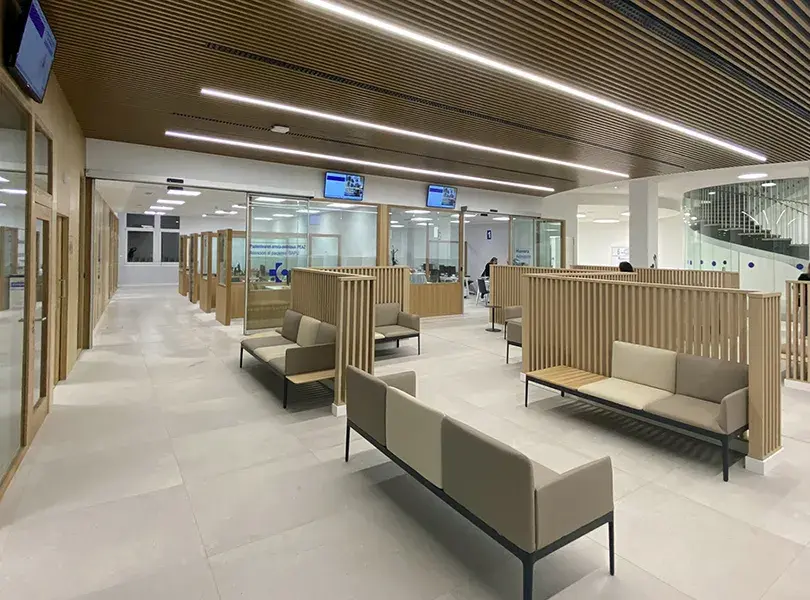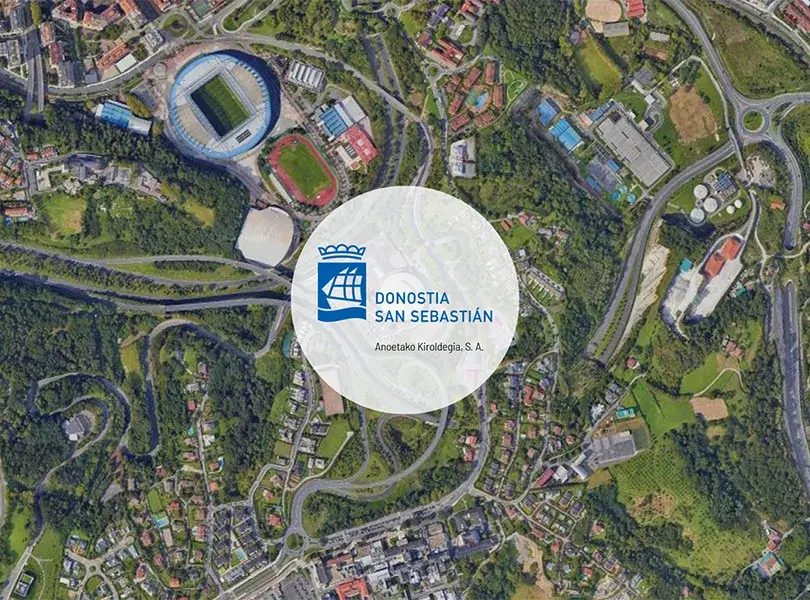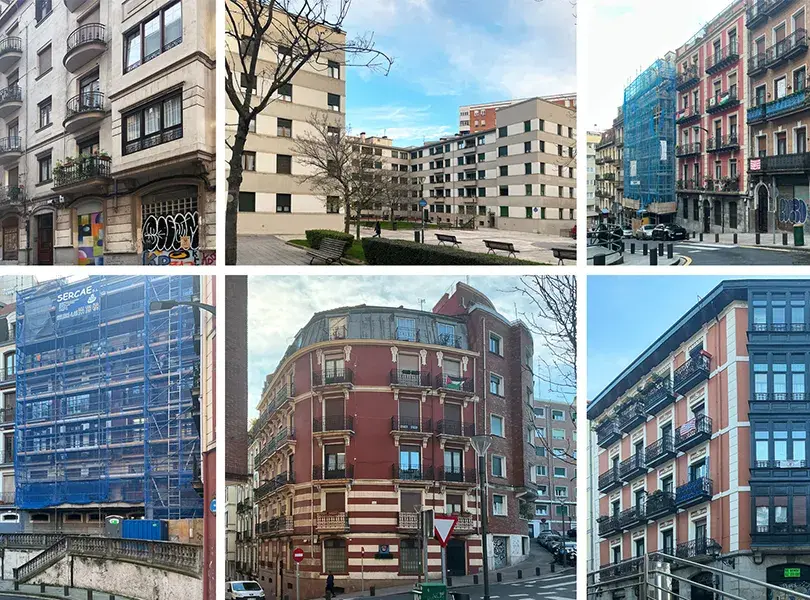Iñigo Echeverría Aldunate (Pamplona, Navarra, 1977) is an engineer and is currently responsible for the Food and Beverage section of KREAN Group. He has extensive experience in the design and development of engineering projects in the food industry and has collaborated with leading companies in the sector. He is currently focused on facing the new challenges of the food sector and promoting sustainable projects.
Echeverría spoke to EnpresaBIDEA about KREAN's work in the sector and its future plans.
What exactly do you do in the Food and Beverage area?
Our activity focuses on engineering projects for the food industry. We design new production plants in their entirety or intervene in existing facilities by means of actions such as the implementation of new process lines, improvements in energy or environmental systems, extensions... We offer a comprehensive service, through a multidisciplinary team, adapted to the specific needs of each client. We coordinate all disciplines from a highly specialised perspective in the field of food.
What is your daily activity like?
It is very dynamic. It requires permanent coordination between technicians with different profiles and a close relationship with clients and suppliers. Each project is unique and that makes our work diverse and enriching.
What are the main technical challenges you face when designing food facilities?
The essential thing is to guarantee food safety. To do this, you have to know each activity well and take into account aspects such as the flow of people and products, the materials used and the environmental conditions. In addition, there are other characteristics such as the seasonality of certain raw materials or the limited shelf life of many products. On the other hand, we must adapt to increasingly demanding environmental regulations and, of course, we must also guarantee economic and energy efficiency.
What is your relationship with customers while developing projects?
Our model is based on comprehensive support from the initial definition of the project to its commissioning. We are committed to a close and long-term relationship. We have been collaborating with many clients for years and this helps us to carry out projects that really respond to their trust and expectations.
Your projects include companies such as Mahou San Miguel, PepsiCo, Florette and the IAN group. Which one has been particularly significant or has posed the greatest challenge?
Every project has its challenges: location, scale, deadlines, technical innovations, etc. The most interesting thing about our work is that no two projects are the same, which means we are always learning. Some are complex because of the environmental conditions, others because of the technologies they use. Every project leaves its mark on our team.
In addition to industrial installations, you collaborate in the strategic development of companies. How important is this strategic approach in architecture and engineering projects?
In many cases we help companies to turn the vision of the future into a structured reality, translating it into master plans and establishing concrete and realistic steps to address medium- and long-term objectives in an orderly manner. We develop roadmaps to guide the transformation and growth of companies from a technical point of view.
What dominant trend are you currently observing in the sector?
Automation, sustainability and digitalisation are the trendsetters. Facilities need to be increasingly efficient and, at the same time, more environmentally friendly. We are also seeing a clear commitment to healthier and more personalised foods, and we have worked on innovative projects related to alternative proteins, such as those based on insects, mycelium or cultivated meat. Their scaled-up industrialisation will be one of the great challenges of the future.
Sustainability and digitalisation are increasingly present. To what extent are they integrated into your daily work?
Sustainability and digitalisation are already fully integrated into our daily work. Today they are indispensable aspects. Issues such as water consumption, the use of renewable energies or waste management are vectors that are implemented in projects from the very beginning.
Likewise, process monitoring and control have become essential elements. A few years ago these aspects were differential, but today they are mandatory and are integrated in all projects.
What main challenges do you see for the food sector in the coming years?
In addition to continuing on the path of sustainability and digitalisation, the sector must adapt to a more informed consumer, new regulations and an increasingly uncertain global context. Climate change and geopolitical instability have a direct impact on the food chain. Another major challenge is to attract and retain the talent of technicians.
Krean is a cooperative belonging to the Mondragon group. How do you think the cooperative nature influences your daily work or your relationship with customers?
The cooperative culture radically determines the way we work. We get involved in every project as if it were our own. We believe in long-term relationships based on trust, both within the group and with clients. This model fosters commitment, which gives us solid results.
What would you highlight in KREAN's way of working?
Collaboration. The projects we develop are complex and carried out by multidisciplinary groups. Profiles of great diversity participate, they understand each other, they coordinate and each one contributes their specific knowledge. Each professional speaks from their own experience, sharing what they really master and putting it at the project’s service.
What advice would you give to a young engineer or architect who wants to work in the food and beverage industry?
On the one hand, I would advise them to prepare themselves well, but above all I would stress the importance of being curious at all times. The food industry is exciting and constantly changing. If you keep your eyes and ears open, you will never stop studying.
What is the next strategic goal of KREAN's Food and Beverage department?
Our main objective is to continue being a reference engineering company in the food and beverage sector. We want to continue developing efficient, safe, sustainable and technologically advanced projects. In short, we want to consolidate our position by participating in projects that are distinctive and benchmarks in the sector.


